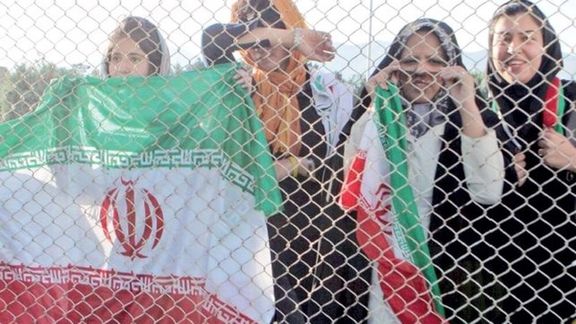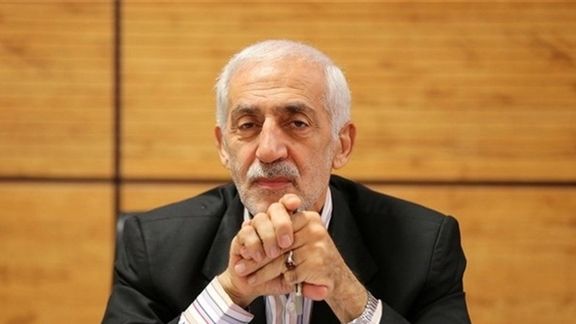Former Iran Football Chief Slams Government For Women's Stadium Ban

A former president of Iran's football federation has strongly criticized hardliner religious authorities for insisting on banning women from soccer stadiums.
Speaking to the reformist Eslahat Press website, Mohammad Dadkan criticized the authorities for claiming that it is against Islam to allow women to join men in watching games at stadiums.
Dadkan argued that those who oppose women's presence in stadiums, on the grounds that it is against their dignity to be present where male fans swear profanities, should feel more concerned that so many Iranian women have to be sex workers abroad, such as in Dubai and Turkey.
Dadkan went on to point out that women had to go abroad as sex workers because the government failed to provide decent jobs to them and added that officials are not ashamed about their failure but are concerned about women watching a game.
"There is so much prostitution, in the Mashhad (a Shiite religious center) where women were not allowed into the stadium, and no one protests about [disrespect to women or] religious dignity. Does watching a match cause harm to religious sanctities?" Dadkan who served as the president of the Iranian football federation from 2003 to 2007 said.
Hundreds of female fans were once again denied entry into a soccer stadium on Tuesday in Mashhad in northeastern Iran to watch a World Cup qualifier between Iran and Lebanon, despite FIFA’s pressure to lift the ban on women entering stadiums. The fans, with tickets in their hands, were stopped and were pepper-sprayed when they demanded to be allowed in.

In an unprecedented turn of events, many Iranians urged FIFA to ban their country from the World Cup for forcibly barring women from the match.
Mashhad is home to numerous hardliner clerics who are against the presence of women in male dominated places. Firebrand representative of the Supreme Leader in the city, Ayatollah Ahmad Alamolhoda has been banning concerts and cultural events for years.
It was during Dadkan's tenure as federation president in 2005 that a group of Iranian women for the first time managed to get into a stadium in Tehran to watch a World Cup qualifier match between Iran and Bahrain.
The renowned director Jafar Panahi made Offside, a film about the incident which won the Sliver Bear at the Berlin International Film Festival in 2006.
"I stood against the authorities who were saying women should not enter the stadium and [ordered] to open the gates … President [Mohammad] Khatami was also present [at the stadium] … I said I would take responsibility for all the consequences," Dadkan said about the event.
The clerical establishment was outraged by the incident and used it as an excuse to attack the reformist government.
Female fans had to wait until October 2019 to be allowed to enter a soccer stadium again when authorities had to relent under pressure from FIFA, which threatened to penalize the Iranian federation for gender discrimination.
For nearly a decade the world’s soccer authority has tried to convince Iran’s clerical rulers to lift the unwritten, four-decade-old ban, which has led to arrests, beatings, detentions, and abuses against women.
In September 2019, a female football fan, Sahar Khodayari, who came to be known as the “Blue Girl” after her favorite team, Esteghlal FC, was reportedly sentenced to jail for trying to enter a stadium disguised as a man. She died by self-immolation, causing a domestic and international outcry.